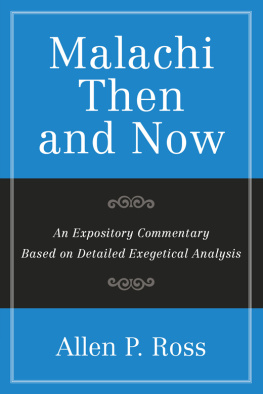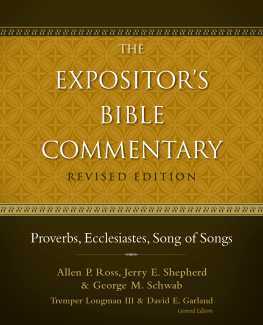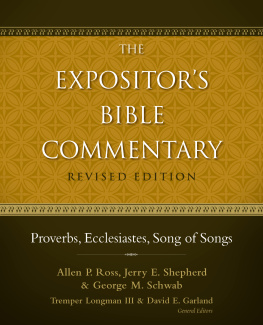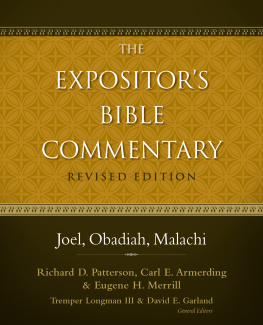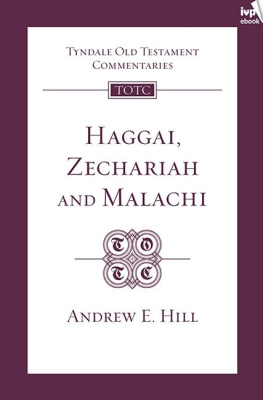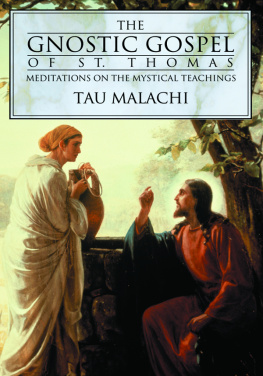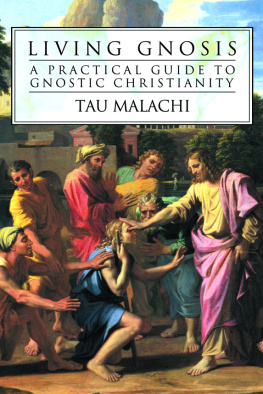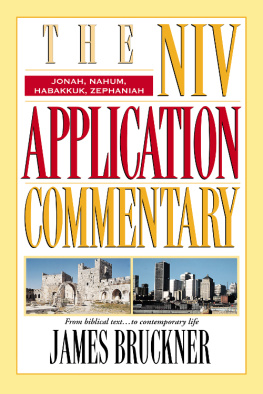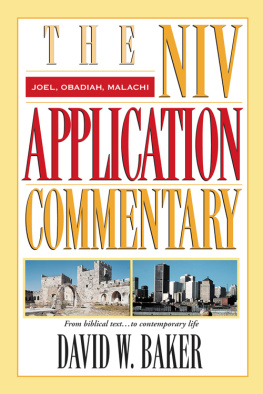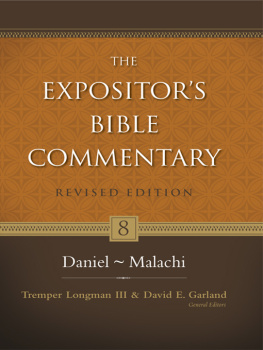The book of Malachi is one biblical book that receives very little attention, apart from the occasional use of a line or two exhorting tithing. This is a pity because if the original audience needed to hear these messages from God as they waited for the coming of the Messiah, the modern professing churches need to hear them all the more because the warnings have been ignored and the failures and violations have continued in spite of the fulfillment of Malachis prophecy of the coming of John the Baptist and Jesus the Messiah. It is a book that should be studied regularly by Christians, or, better yet, preached often in the churches with all the passionate intensity of the prophet.
Malachi must not be passed over as just another historical collection of messages from ancient Israels prophets. It is the word of God, true and trustworthy in all it says, and timelessly relevant in its admonitions and warnings. The messages are addressed to all who profess to be the people of God, some of whom truly believe and others who actually do not believe in the Lord ; but the messages are applicable to everyone because they come with the warning of the final judgment that will separate the righteous believers from the unbelievers.
A brief overview of the messages in Malachi will show clearly how important they are to the way Christians think and live now:
- The prophet has to remind that people who were living in troubling times that Gods everlasting love chose them and would see them through the difficulties of this life.
- The prophet admonishes the people to replace cheap, contemptible, and meaningless ritual with worship that honors God.
- The prophet denounces ministers for ruining the ministry by causing people to stumble in the faith because of their failure to teach the word of the Lord correctly and impartially.
- The prophet condemns those who profane the holy covenant of marriage by divorcing their legitimate spouses and marrying pagan unbelievers.
- The prophet answers the foolish charge that God was not just in dealing with sinners by declaring that no one can withstand the imminent coming of the Lord to purge sin and judge the wicked.
- The prophet rebukes the people for robbing God and challenges them to trust his faithfulness by faithfully bringing their tithes and offerings.
- The prophet instructs the people to heed the warnings of the coming messengers to repent before the great and terrible day of the Lord comes when he will separate the righteous from the wicked.
The seven messages uncover the failures of the people: they forgot the love of God and were troubled by events in the world, they ruined worship with their quick and easy participation, the word of God was not being declared with power and clarity, holy marriage had been profaned by choosing corrupting pagan partners, they had become self-righteous in charging God with failing to judge the wicked and needed to be reminded of the promise of his coming to judge sin, they robbed God by failing to give him their tithes and offerings and as a result did not receive his untarnished blessing, and they were complaining that they did not benefit much by following the Lord and had to be reminded of the great day of the Lord that would destroy the wicked and set the righteous free.
All these messages are greatly needed today. They are timeless, even though some of the circumstances have changed over the years. For example, we do not bring animal sacrifices today for our worship service, but the principle of giving our best to God applies to every offering we make, and the fulfillment of the typology of the sacrificial Lamb is central to all truly Christian worship.
Gods people are in a similar position today as the people were then: we too are desiring the coming of the Messiah to deliver his people from the bondage of the world and destroy wickedness. His messengers will prepare people for the coming by calling them to repent; but it will not be John, for that prophecy was fulfilled at the first coming of our Lord. We are now waiting for the second coming. Thus we live on the other side of the Lords coming to his temple; the fulfillment of that prophecy should inspire greater hope as we await the fulfillment of the second.
This commentary is designed to provide two helpful resources for the expositor and serious student of the Bible. First, it is a commentary on the book of Malachi. But second, it demonstrates the process of developing the exposition from the exegetical analysis of the text. As a commentary, the work will benefit anyone who wants to understand Malachi; but as a study guide, the material will be of greater use to the expositor who has had training in biblical exegesis.
For years I have used the book of Malachi in teaching Hebrew exegesis in seminary. In class use the students would be given assignments on each step and in each passage and then out of those assignments form the exegetical basis and the expository format.
But organizing the material for publication provided a different challenge; only the conclusions of the analysis of the text and the preparation of the exposition could be included. At an early stage the idea of putting the exegetical material in footnotes to the exposition of the book was abandoned for the simple reason that it seemed to lessen the importance of the exegetical material. Moreover, people often do not read the footnotes. The present format not only presents the exegetical analysis as important as the final commentary, but demonstrates the movement from exegesis to presentation as well.
For each passage there will first be a translation of the text with a few footnotes that deal with textual difficulties or provide explanations for the translation of the Hebrew text. This will be followed by exegetical observations on the text, discussions of the grammar and syntax that are necessary to understanding the translation and its meaning. Some of these notes will include more information relevant to the resolution of textual difficulties. Common aspects of the grammar and syntax will not be given much attention. Then after this a detailed exegetical outline will be provided so that the argument of the passage can be understood in its development. An exegetical summary of the unit will then be provided. At this point the reader will have a clear understanding of the way the text was written in the original language, as well as the meaning of the words, the syntax, and the contextual ideas.

